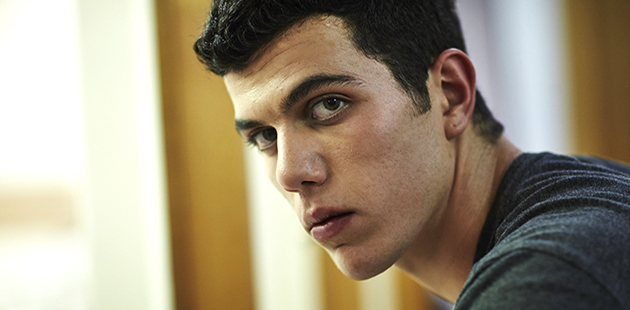 By 3am Monday morning I had watched all four episodes of the ABC’s adaptation of Christos Tsiolkas’ Barracuda. While I was captivated by the first episode of the series, I suspect for many viewers, this episode may have disappointed. Some may have found it too cliched, slow moving.
By 3am Monday morning I had watched all four episodes of the ABC’s adaptation of Christos Tsiolkas’ Barracuda. While I was captivated by the first episode of the series, I suspect for many viewers, this episode may have disappointed. Some may have found it too cliched, slow moving.
However, I suspect the main reason might be that the series presents an Australian sporting story which was negative not positive; depressing not uplifting; challenging not straight-forward. This is not an Australian sporting drama of the genre which marvels at the exploits of Don Bradman, Cathy Freeman or Jonathon Thurston.
For most Australians, sport is a privileged social institution which is supposed to inspire and unite. Success at international level, especially at the time of the Olympics, is a particular high point in this cycle. In periods of sporting success, nationalism and Australia’s self-esteem is raised to levels which no other institution can achieve.
Around the time of the 2000 Sydney Olympics, the following athletes took out the award for Australian of the Year: 1998 Cathy Freeman; 1999 Mark Taylor; 2002 Patrick Rafter; and 2004 Steve Waugh Australia. Former prime-minister John Howard, had called Don Bradman, the greatest Australian that ever lived. Many of our greatest athletes were swimmers and for many Australians, swimming is their national sport. Swimming boasts high rates of participation across ages and gender, coupled with international success.
This positive perception of Australian sport has, for the most part, been manifest in film and art. This is particularly so in the movies. It is no coincidence that Australia’s first film, which was supposed to represent quintessential Australian culture, was filmed at the 1896 Melbourne Cup. As early as 1896, sport had already cemented its place in Australia’s social hierarchy; and a strong link between Australian culture, sport and Australian film was established.
The most striking example of this phenomenon is Peter Weir’s Gallipoli, which depicts events of the ill-fated Gallipoli landing in 1915. It is 35 years old, but always a favourite on days such as ANZAC Day and, tragic military blunder aside, it simply tells the story of two athletes: one amateur (running for the love of sport) and one professional (running for money). Good versus Bad, and along the way in the dramatic last scene, the professional runner (Mel Gibson) gains redemption by volunteering to run on a suicide mission; running, not for money, but for love. In Australian film, sport is the factory which manufactures heroic winners.
That is not the case in Barracuda. Tsiolkas highlights the negative discourse associated with Australian sport. First, the protagonist doesn’t go on to a sterling career, like his 1,500 metre swimming idol Daniel Kowalski. It demonstrates to us that for every Kowalski, there is trail of wreckage of young men and women who don’t make it. These athletes often fail to deal with the disappointment and are scarred with mental health issues and difficulties adapting to the non-sporting world.
Second, it vividly presents all which is wrong with sport, the ugly coach and ugly parent syndromes, win at all cost, tolerance of bullying and narcissism. Third, the protagonist of the series is homosexual. And in Australian sporting culture an openly gay elite sportsman is an anathema – just ask Ian Thorpe!
Fourth, perhaps the most poignant message is that contemporary elite sport has lost its educational value, with subtle examples noted throughout. For example, there is the public versus private school divide, highlighting that elite swimming is not open to all. In order to make it you need to attend a rich, male private school with all the facilities and coaching expertise.
Barracuda challenges our egalitarian perception of sport, which is the backbone of our national culture. While sport is supposed to also provide athletes with life lessons, embedding skills in teamwork and problem solving, there is none of that here, where young athletes are obsessed with winning and that nothing else matters.
The protagonist Kelly drops out of school and discards education completely. He was on a sporting scholarship with all the opportunities that entails, but all that mattered was swimming. Tsiolkas’ athletes are not inspiring individuals and you wouldn’t like to think of them as role models.
For many Australians, athletes are the most esteemed role models. Barracuda might be fiction but it raises issues all Australian sport lovers need to confront.
Barracuda screens on ABC1. The entire 4 part series is available on ABC iview. For more information, visit:www.abc.net.au for details.
How Barracuda has hit a nerve
Dr Steve Georgakis, Faculty of Education and Social Work, University of Sydney
Image: Elias Anton plays Danny Kelly in Barracuda – courtesy of ABC
